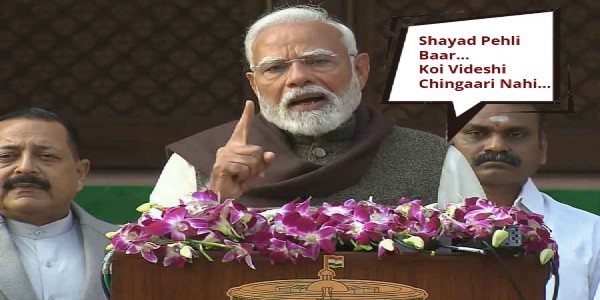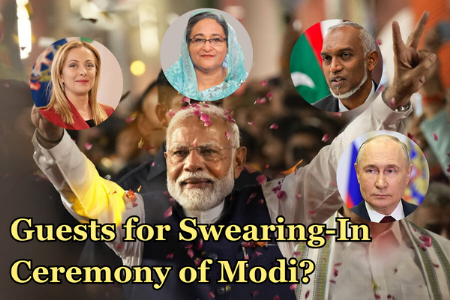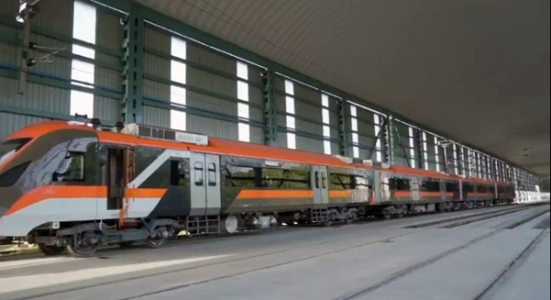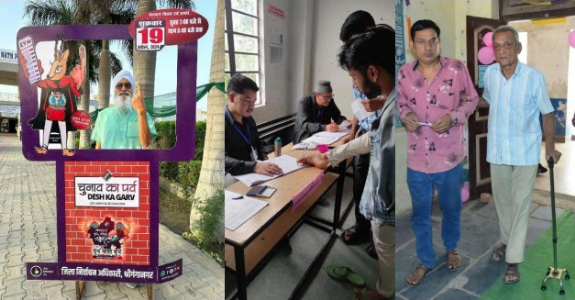#9YearsOfModiGovernment: 9 tough yet significant decisions taken by PM Modi
Total Views | 142
#9YearsOfModiGovernment: Narendra Modi was first sworn in as the Prime Minister of India on May 26, 2014, after the Bhartiya Janata Party-led National Democratic Alliance won a mandate in the 2014 general elections. He was re-elected for the second term in 2019. For the past nine years, the government under the leadership of PM Modi has taken several landmark decisions that transformed India. These included UPI and the Ram Mandir construction.
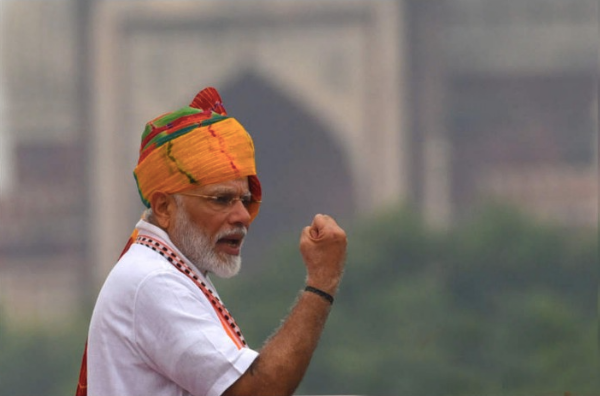
1. Abrogation of Article 370
The abrogation of Article 370 was a significant decision undertaken under PM Narendra Modi. Article 370 granted a special status to Jammu and Kashmir. The abrogation of Article 370 led to the reorganization of the state into two separate Union Territories: Jammu and Kashmir, and Ladakh. The move also paved the way for the application of various central laws, policies, and initiatives in the region that were previously not applicable
Since morning, I am seeing many Tweets on #9YearsOfModiGovernment in which people are highlighting what they have appreciated about our Government since 2014. It is always humbling to receive such affection and it also gives me added strength to work even harder for the people.
— Narendra Modi (@narendramodi) May 27, 2023
2. Ram Mandir in Ayodhya
The Ram Mandir in Ayodhya was a longstanding and contentious matter, rooted in a dispute over the site where the Babri Masjid stood once. On November 9, 2019, the Supreme Court of India delivered a verdict on the Ayodhya land dispute, ruling in favor of the construction of a Ram Temple. It also directed the government to allocate an alternative piece of land for the construction of a mosque. Following the court's verdict, the government, led by Prime Minister took proactive steps to construct it. The construction of the Ram Temple commenced in August 2020, with the Prime Minister attending the groundbreaking ceremony.
3. EWS (Economically Weaker Sections) reservation
It refers to a Modi government policy aimed at providing reservations in education and employment for individuals from economically disadvantaged backgrounds. Introduced in 2019, the EWS reservation provides opportunities to individuals from economically weaker sections of society who were previously not covered by existing reservation policies. Under this initiative, a specific percentage of seats in educational institutions and job openings in the public sector are reserved for EWS candidates. The reservation is implemented alongside existing reservation quotas for Scheduled Castes (SC), Scheduled Tribes (ST), and Other Backward Classes (OBC).
4. The Triple Talaq law
The Triple Talaq law, officially known as the Muslim Women (Protection of Rights on Marriage) Act, 2019, is a legislation enacted by the Modi government to address the issue of instant divorce through the practice of Triple Talaq, prevalent among some sections of the Muslim community. It refers to the practice where a Muslim man can divorce his wife by uttering the word "talaq" (divorce) three times in quick succession, without any legal process or recourse. The law criminalizes the pronouncement of Triple Talaq and makes it a cognizable offense, punishable with imprisonment for up to three years. It also provides for financial support and custody rights for the affected Muslim women.
5. Balakot Air Strike
Ensuring that nobody has right to carrying out terrorist attack in India, the Balakot air strike, a military operation carried out by the Indian Air Force on February 26, 2019, targeting a terrorist training camp in Balakot, Pakistan, was in response to a deadly terrorist attack on February 14, 2019, in Pulwama, Jammu and Kashmir, where a suicide bomber belonging to the Pakistan-based terrorist organization Jaish-e-Mohammed (JeM) attacked a convoy of Indian security forces, resulting in the loss of numerous lives. In the Balakot air strike, Indian fighter jets crossed the Line of Control (LoC) and dropped precision-guided bombs on the JeM training camp.
6. Surgical Strike
The surgical strike refers to a military operation conducted by the Indian armed forces as a response to cross-border terrorism. The term gained prominence following a significant surgical strike carried out in September 2016 in the aftermath of a deadly terrorist attack on an Indian Army base in Uri, Jammu and Kashmir. The surgical strike involved a well-planned and targeted operation where Indian Special Forces conducted precise and limited strikes on terrorist launch pads across the Line of Control (LoC). The surgical strike was conducted with the aim of sending a strong message to Pakistan about India's zero-tolerance policy towards cross-border terrorism.
7. The Citizenship Amendment Act (CAA)
It is legislation enacted in India in December 2019. The CAA amends the Citizenship Act of 1955 and provides a pathway to Indian citizenship for certain religious minority communities from Afghanistan, Bangladesh, and Pakistan. The CAA grants eligibility for Indian citizenship to Hindu, Sikh, Buddhist, Jain, Parsi, and Christian migrants who entered India before December 31, 2014, due to religious persecution in these three countries.
8. UPI
Unified Payment Inerface was a game changer initative by Modi government. It has strengthened the initative of Digital India. No one could even imagine including economists, finance eperts, politicians that the majority of Indians would transact digitally for their daily small payments. It is also rapidly replacing other modes of payments already. It has made common man's life easier!
9. World Largest Vaccination Drive
With the UPA govt also creating image of India where the country is heavily dependet on foreign imports, the Modi government not only manages to develop vaccines in record but also vaccinate more than billion people flawlessly under world's largest vaccination drive.
Bharati Web




